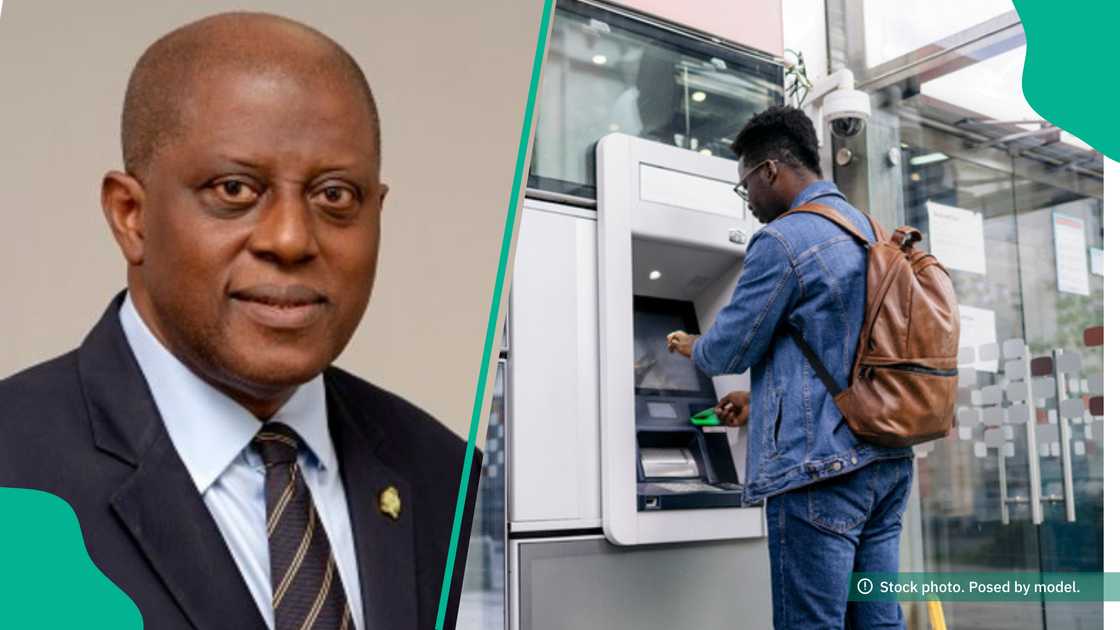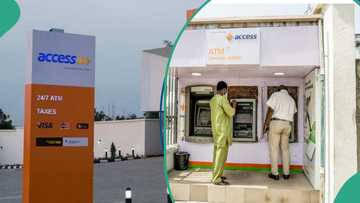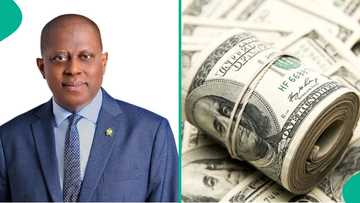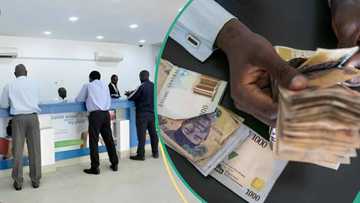Zenith, GTB, UBA, Others Approach CBN to Borrow N18trn After Important Announcement
- Deposit money banks and merchant banks in the country borrowed a whooping N18.04 trillion from the CBN
- The N18.09 trillion represents 31,565% increase over N57.14 billion borrowed in the same period in October 2023
- The reported amount by banks and merchant banks is the second highest amount accessed from the CBN this year
Legit.ng journalist Zainab Iwayemi has 5-year-experience covering the Economy, Technology, and Capital Market.
Financial statistics made public by the Central Bank of Nigeria (CBN), in October 2024 has shown that the nation's merchant and deposit money banks borrowed N18.04 trillion from the CBN.

Source: UGC
Compared to the N57.14 billion borrowed during the same period in October 2023, the N18.09 trillion is a 31,565 percent increase.
A study by THISDAY found that banks and merchant banks borrowed an astounding N104.61 trillion from the CBN in the ten months of 2024, up 532.1% from the N16.55 trillion borrowed in the ten months of 2023, due to liquidity issues in the financial sector.

Read also
Access Holdings releases performance breakdown in 9 months, revenue, customer deposits hit new high
Compared to the N21.74 trillion borrowed in March 2024, the reported N18.09 trillion by banks and commercial banks is the second-highest amount accessed from the CBN this year.
Money borrowed throgh Standing Lending Facility
The Standing Lending Facility (SLF), a line of short-term credit that banks and merchant banks can access when they need to cover their clients' immediate short-term withdrawals, describe they borrow from the apex bank.
Banks and merchant banks currently borrow at 32.25 percent, the asymmetric corridor surrounding the MPR at +500/-100 basis points, after the MPR was raised to 27.25%.
Banks were permitted to borrow at a rate of 31.75 percent when the MPR was at 26.75 percent, according to the most recent circular, which was signed by Dr. Omolara Duke, Director of the Financial Markets Department, CBN.

Read also
Boost for naira as Western Union, other IMTOs increase dollar inflows to Nigeria to $2.33bn
The SLF is available to banks via the Scripless Securities Settlement System (S4) between the hours of 5:00 and 6:30 p.m. Furthermore, authorized dealers are allowed to use the Intraday Lending Facility (ILF) for free as long as the loan is paid back the same day.
CBN announces changes in MPR
According to the CBN, at its 296th meeting, the MPC adjusted the upper corridor of the standing facilities from 1.00 percent to 5.00 percent around the MPR.
It added,
“Consequently, the suspension of the Standing Lending Facility (SLF) is hereby lifted and Authorised Dealers should send their request for SLF through the Scripless Securities Settlement System (S4) within the operating hours of 5.00pm to 6.30pm.
“To this end, Authorised Dealers are permitted to access the SLF at 31.75 per cent; Permitted to access Intraday Lending Facility (ILF) to avoid system gridlock at no cost if repaid the same day;
“The five per cent penalty (as stated in the S4 business rules) is retained, for participants that do not settle their ILF, which the system will convert to SLF at 36.75 per cent;
“Collateral execution (the rediscounting of instruments pledged by participants at the penal rate by CBN) is reintroduced as stipulated in the approved repo guidelines. “The circular takes immediate effect.”
World Bank Issues Warning to CBN Over Sale of Dollar
Legit.ng reported that the Central Bank of Nigeria has been advised by the World Bank against using forex auctions as a means of interfering in the foreign exchange market.
Additionally, the World Bank suggested that the commitment to exchange rate flexibility be consistently reaffirmed by implementing a thorough, methodical, and open framework for foreign exchange intervention.
The policy advisory issued by the World Bank was included in the Nigeria Development Update, offering recommendations to stabilise the naira against foreign currencies.
PAY ATTENTION: Сheck out news that is picked exactly for YOU ➡️ find the “Recommended for you” block on the home page and enjoy!
Source: Legit.ng



